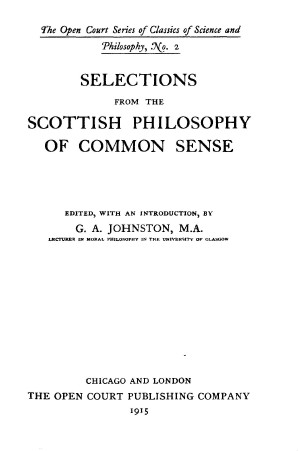
Selections from the Scottish Philosophy of Common Sense
- George Alexander Johnston (editor)
- Dugald Stewart (author)
- James Beattie (author)
- Adam Ferguson (author)
- Thomas Reid (author)
Johnston introduces his selection of some representative works of the Scottish School of Common Sense by Thomas Reid, Adam Ferguson, James Beattie, and Dugald Stewart.